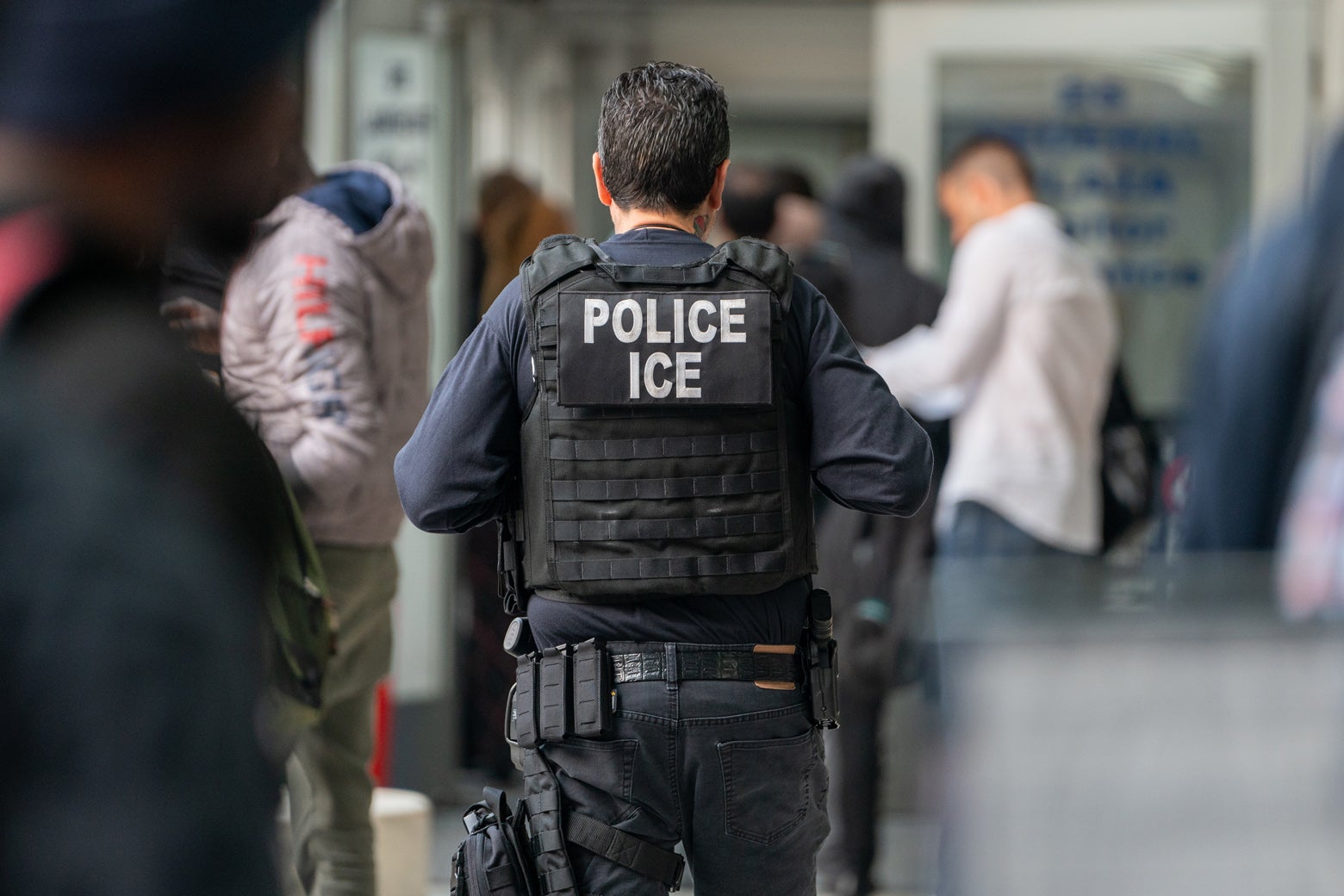Welcome to DU!
The truly grassroots left-of-center political community where regular people, not algorithms, drive the discussions and set the standards.
Join the community:
Create a free account
Support DU (and get rid of ads!):
Become a Star Member
Latest Breaking News
Editorials & Other Articles
General Discussion
The DU Lounge
All Forums
Issue Forums
Culture Forums
Alliance Forums
Region Forums
Support Forums
Help & Search
General Discussion
Related: Editorials & Other Articles, Issue Forums, Alliance Forums, Region ForumsHow Courts Can Stop Trump From Using ICE Raids Against Hospitals

The Trump administration’s decision to end long-standing rules barring Immigration and Customs Enforcement from conducting raids in hospitals and clinics has sparked outrage among health care workers and public health advocates. Health care workers have a fundamental ethical responsibility to refuse to cooperate with ICE in order to protect public trust in medical facilities as spaces of care rather than surveillance, policing, and punishment. But the ethical responsibility to oppose ICE incursions into medical facilities doesn’t fall solely on health workers and medical institutions. Judges, too, will play a critical role in upholding both the legal and ethical norms that sustain public trust in our essential civic institutions. To fulfill it, they must refuse to issue warrants that allow ICE to violate the sanctity of health care spaces.
Hospitals and clinics are not ordinary spaces. They are vital lifelines where individuals seek care free from fear or judgment. For immigrants lacking permanent legal status, as well as their families, this sanctuary is now under threat. When ICE targets these spaces, the repercussions ripple across entire communities, driving people away from essential medical care. The consequences are stark: untreated infectious diseases, worsening chronic illnesses and mental health, delays in addressing emergencies like heart attacks and strokes, and preventable maternal and infant deaths. These outcomes are not hypothetical—they are well-documented realities from past instances when state-fomented fear kept vulnerable immigrant populations from seeking care.
Judges must apply the discretion that the law affords them to act as a bulwark against this erosion of public health. They have the power—and the responsibility—to prevent the misuse of judicial authority in ways that harm the most vulnerable. By refusing to issue warrants for ICE raids in medical facilities, judges can do their duty to uphold the Fourth Amendment protections that safeguard privacy and ensure that the judiciary does not become complicit in undermining public health and medical ethics.
The Fourth Amendment requires that warrants be issued based on probable cause and that they describe the specific place to be searched and the items or individuals to be seized. For ICE, this means that any incursion into private areas of a hospital—such as patient-care units—must be justified with detailed evidence. Yet, as legal scholars and immigrant rights advocates have noted, ICE often uses vague or boilerplate warrant applications that fail to meet these standards. Judges should scrutinize these requests rigorously and reject them when they fail to justify the intrusion into protected spaces.
Hospitals and clinics are not ordinary spaces. They are vital lifelines where individuals seek care free from fear or judgment. For immigrants lacking permanent legal status, as well as their families, this sanctuary is now under threat. When ICE targets these spaces, the repercussions ripple across entire communities, driving people away from essential medical care. The consequences are stark: untreated infectious diseases, worsening chronic illnesses and mental health, delays in addressing emergencies like heart attacks and strokes, and preventable maternal and infant deaths. These outcomes are not hypothetical—they are well-documented realities from past instances when state-fomented fear kept vulnerable immigrant populations from seeking care.
Judges must apply the discretion that the law affords them to act as a bulwark against this erosion of public health. They have the power—and the responsibility—to prevent the misuse of judicial authority in ways that harm the most vulnerable. By refusing to issue warrants for ICE raids in medical facilities, judges can do their duty to uphold the Fourth Amendment protections that safeguard privacy and ensure that the judiciary does not become complicit in undermining public health and medical ethics.
The Fourth Amendment requires that warrants be issued based on probable cause and that they describe the specific place to be searched and the items or individuals to be seized. For ICE, this means that any incursion into private areas of a hospital—such as patient-care units—must be justified with detailed evidence. Yet, as legal scholars and immigrant rights advocates have noted, ICE often uses vague or boilerplate warrant applications that fail to meet these standards. Judges should scrutinize these requests rigorously and reject them when they fail to justify the intrusion into protected spaces.
https://slate.com/news-and-politics/2025/01/courts-can-stop-trump-ice-raids-hospitals.html
2 replies
 = new reply since forum marked as read
Highlight:
NoneDon't highlight anything
5 newestHighlight 5 most recent replies
= new reply since forum marked as read
Highlight:
NoneDon't highlight anything
5 newestHighlight 5 most recent replies
How Courts Can Stop Trump From Using ICE Raids Against Hospitals (Original Post)
justaprogressive
Jan 24
OP
edhopper
(35,329 posts)1. Warrants?
They don't need no stinking warrants.
Arazi
(7,443 posts)2. Traitor's admin will take this to the 5th Circuit
And it will follow the now familiar RW path to SCOTUS and they’ll allow it.
Judge shopping is now the norm for this shit.
This article is basically a plea for sanity, common sense and compassion which means they’re definitely going into hospitals